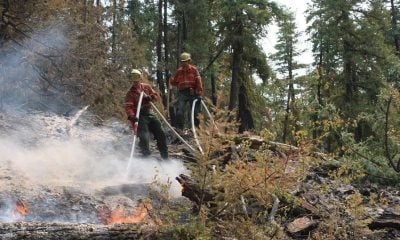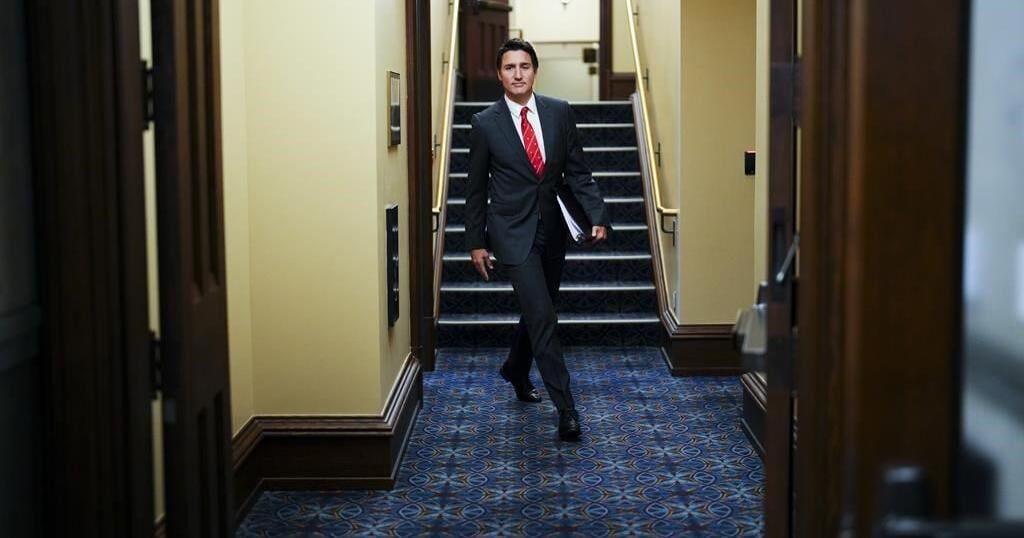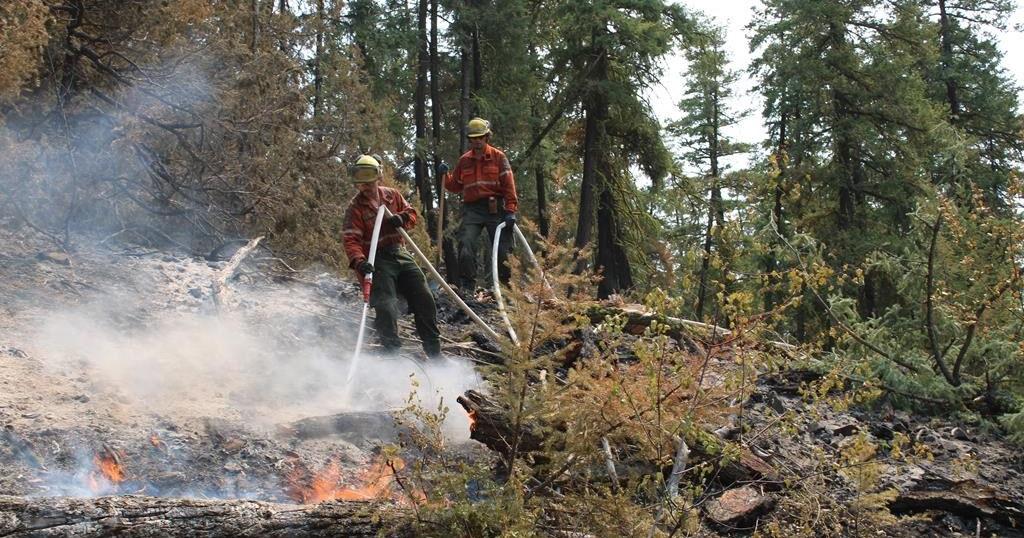OTTAWA – Liberal House leader Karina Gould lambasted Conservative Leader Pierre Poilievre as a “fraudster” Monday morning after he said the federal carbon price is going to cause a “nuclear winter.”
Gould was speaking just before the House of Commons is set to reopen following the summer break. Monday is the first sitting since the end of an agreement that had the NDP insulate the Liberals from the possibility of a snap election, one the Conservatives are eager to trigger.
With the prospect of a confidence vote that could send Canadians to the polls, Bloc Québécois Leader Yves-François Blanchet cast doubt on how long MPs will be sitting in the House of Commons.
“We are playing chicken with four cars. Eventually, one will eat another one, and there will be a wreckage. So, I’m not certain that this session will last a very long time,” Blanchet told reporters on Monday.
On Sunday Poilievre said increasing the carbon price will cause a “nuclear winter,” painting a dystopian picture of people starving and freezing because they can’t afford food or heat due the carbon price.
He said the Liberals’ obsession with carbon pricing is “an existential threat to our economy and our way of life.”
The carbon price currently adds about 17.6 cents to every litre of gasoline, but that cost is offset by carbon rebates mailed to Canadians every three months.
The Parliamentary Budget Office provided analysis that showed eight in 10 households receive more from the rebates than they pay in carbon pricing, though the office also warned that long-term economic effects could harm jobs and wage growth.
Gould accused Poilievre of ignoring the rebates, and refusing to tell Canadians how he would make life more affordable while battling climate change.
“What I heard yesterday from Mr. Poilievre was so over the top, so irresponsible, so immature, and something that only a fraudster would do,” Gould said from Parliament Hill.
The Liberals have also accused the Conservatives of dismissing the expertise of more than 200 economists who wrote a letter earlier this year describing the carbon price as the least expensive, most efficient way to lower emissions.
Poilievre is pushing for the other opposition parties to vote the government down and trigger what he calls a “carbon tax election.”
Despite previously supporting the consumer carbon price, NDP Leader Jagmeet Singh has been distancing himself from the policy.
Singh wouldn’t say last week whether an NDP government would keep the consumer carbon price. On Monday, he told reporters Canadians were already “doing their part” to fight climate change, but that big polluters are getting a “free ride.”
He said the New Democrats will focus this fall on affordability issues like housing and grocery costs, arguing the Liberals and Conservatives are beholden to big business.
“Their governments have been in it for CEOs and big corporations,” he told reporters Monday on Parliament Hill.
Poilievre intends to bring a non-confidence motion against the government as early as this week but would likely need both the Bloc and NDP to support it. Neither have indicated an appetite for triggering an election.
Gould said she has no “crystal ball” over when or how often Poilievre might try to bring down the government.
“I know that the end of the supply and confidence agreement makes things a bit different, but really all it does is returns us to a normal minority parliament,” she said.
“That means that we will work case-by-case, legislation-by-legislation with whichever party wants to work with us,” she said, adding she’s already been in touch with colleagues in other parties to “make Parliament work for Canadians.”
The Liberals said at their caucus retreat last week that they would be sharpening their attacks on Poilievre this fall, seeking to reverse his months-long rise in the polls.
Freeland suggested she had no qualms with criticizing Poilievre’s rhetoric while having a colleague call him a fraudster.
She said Monday that the Liberals must “be really clear with Canadians about what the Conservative Party is saying, about what it is standing for — and about the veracity, or not, of the statements of the Conservative leader.”
Meanwhile, Gould insisted the government has listened to the concerns raised by Canadians, and received the message when the Liberals were defeated in a Toronto byelection in June, losing a seat the party had held since 1997.
“We certainly got the message from Toronto-St. Paul’s and have spent the summer reflecting on what that means and are coming back to Parliament, I think, very clearly focused on ensuring that Canadians are at the centre of everything that we do moving forward,” she said.
The Liberals are bracing, however, for the possibility of another blow Monday night, in a tight race to hold a Montreal seat in a byelection there. Voters in LaSalle—Émard—Verdun are casting ballots today to replace former justice minister David Lametti, who was removed from cabinet in 2023 and resigned as an MP in January.
The Conservatives and NDP are also in a tight race in Elmwood-Transcona, a Winnipeg seat that has mostly been held by the NDP over the last several decades.
There are several key bills making their way through the legislative process, including the online harms act and the NDP-endorsed pharmacare bill, which is currently in the Senate.
This report by The Canadian Press was first published Sept. 16, 2024.






























